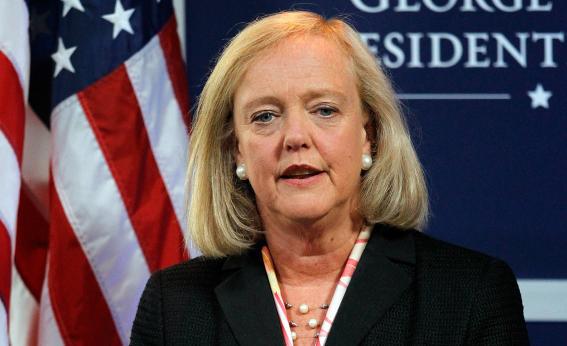How could Hewlett-Packard find a $5 billion-plus hole in an $11.1 billion deal? The U.S. tech giant claims to have uncovered all kinds of accounting nasties at Autonomy, the British software outfit it bought last year. But HP won’t say quite how the allegations - strongly denied by Autonomy’s ex-boss Mike Lynch - could produce such a colossal writedown. Breakingviews tries a spot of reverse-engineering to see how it could be possible.
Given what it now believes about Autonomy’s profitability and growth, HP is effectively saying it would have paid a little more than half the sticker price for the Cambridge-based company. The writedown outstrips the deal’s $4.6 billion premium over Autonomy’s market value at announcement.
Autonomy doesn’t have much in the way of hard assets or outstanding invoices, so the charge can’t relate to a sudden revaluation of kit or the failure of existing customers to pay their bills. The last balance sheet shows just $43 million of plant and equipment, and “accounts receivable” - customer debts - of $330 million: 0.4 percent and 3 percent of the purchase price respectively. Even if, say, half of accounts receivable proved suspect, that would only make up 3 percent of the mega writedown.
So the charge must reflect a reassessment by HP of the future cash flows it will obtain from the business. HP now thinks these are worth a lot less than it thought: smaller and growing less quickly. HP has provided one or two hard data points. The most important is Chief Executive Meg Whitman’s assertion that Autonomy’s real operating profit margin was 28-30 percent, not the reported 40-45 percent.
The difference between these numbers has to be explained by some combination of exaggerated revenue and understated expenses. It sounds like HP is more concerned with the former: Whitman accused Autonomy of “stripping the revenue out of the future” by turning long-term deals into upfront licence payments, and also of being too eager to record sales made through resellers.
The booking of revenue is a minefield in the software industry - and one that differing accounting rules make even harder to navigate. Still, if the claimed distortion comes from revenue manipulation, the window-dressing would have to have been on an industrial scale. Here’s why.
With Whitman’s comment in mind, imagine a company that has $80 million of revenue, with $56 million of costs. That leaves $24 million of operating profit, for a 30 percent margin. Now suppose it can somehow record $20 million of future sales now, without recognising any of the extra costs. This year’ revenue will swell by a quarter to $100 million, while operating profit will nearly double to $44 million, lifting the operating margin to 44 percent.
Do the same revenue adjustment at Autonomy using Morgan Stanley’s pre-acquisition estimate of 2011 revenue and earnings and Breakingviews calculates that the “true” income statement would show revenue 19 percent lower than HP expected. This assumes operating margins drop from 42.7 percent to 30 percent. In that case, EBITDA would be $372 million, about 34 percent below the number Autonomy would otherwise have reported.
A revision of this magnitude would cut the bid value by $3.8 billion, since deals are valued as a multiple of EBITDA. And that assumes that enterprise value was still calculated at the same 20-times multiple that was actually paid by HP.
Of course, that still leaves another $1.2 billion of destroyed value to explain. But that could easily stem from applying a lower multiple too. Profitability is one factor in determining the EBITDA multiple a business can command.
HP goes further. It also complains about poorly disclosed - and loss-making - sales of hardware. Autonomy was supposed to be a high-margin software company, so it’s easy to see why such sales would jar. But it is hard to see how this could move gross margins more than a percentage point or two.
The hardware sales, HP reckons, helped inflate revenue and boost gross margins, because some costs were mislabelled as sales and marketing expenses - which come out further down the income statement. The most striking impact would be seen if these sales were rising fast, flattering Autonomy’s overall growth rate. Since growth is another factor in valuation multiples, that could also have affected the price HP thought it could justify paying for Autonomy. But it is hard to tell whether what HP alleges was happening: Autonomy did in fact say some sales involved hardware, or “appliance”, but did not break out the exact revenue contribution.
Finally, there are potential factors that others have pointed to. For example, companies can boost profit by inappropriately treating current expenses, which must be written off as they occur, as investments, which are amortised over several years. Some analysts accused Autonomy of doing just that with research spending. Also, Autonomy was acquisitive. Takeovers can, for example, flatter growth rates, if pre-acquisition sales are understated. Sceptics also questioned Autonomy’s acquisition accounting.
It is, then, technically possible that HP could demonstrate that bad accounting led to a hole of the size it identifies. Lynch rejects all charges of distortion. He says he did nothing other than follow international accounting rules. Until HP’s accusations are spelled out fully, and investigated properly, it will be impossible for outsiders to know what really happened.
